
Mamie Smith: Blues Revolutionary and Trailblazer for Black Women in Music
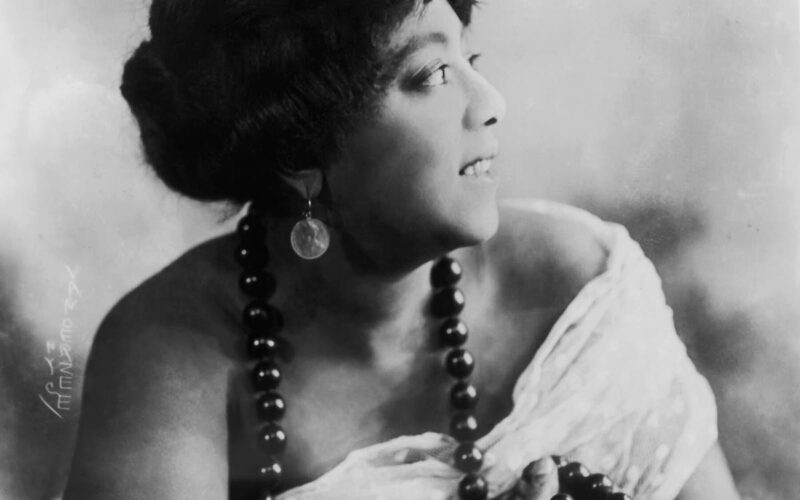

Throughout history, women have faced unique challenges when pursuing their careers and striving for excellence. However, the journey has been even more arduous for black women, who have had to break through multiple layers of discrimination and bias.
In this week’s art history article, we decided to take a shift from visual artists and introduce the incredible journey of Mamie Smith, who not only shattered stereotypes but also made a significant impact in the world of music.
Though Mamie Smith’s name might not be as widely recognized as some of the big names in music history, but one that deserves to be celebrated for her groundbreaking contributions. In the early 20th century, Mamie Smith was a pioneer, a blues revolutionary, and a trailblazer for black women in music.
In a time when the music industry largely ignored black artists, especially black women, Mamie Smith stepped into a recording studio and laid down the tracks for “Crazy Blues.” This wasn’t just a song; it was a cultural earthquake. “Crazy Blues” became a sensation, selling over a million copies, and it marked the birth of recorded blues music. Mamie Smith’s voice and talent shattered barriers, opening doors for countless black female artists who would follow in her footsteps and this is her story.
Early years and the foundation of her music career
Mamie Smith was born on May 26, 1883, in Cincinnati, Ohio. Her birth name was Mamie Robinson, and she was the daughter of a German-American father and an African American mother. Growing up in a diverse and musically rich environment, Mamie was exposed to various musical genres from a young age.
Her childhood was marked by a deep love for music, and she showed exceptional talent as a singer and dancer. Mamie’s passion for the performing arts was evident early on, and she honed her skills by participating in local talent shows and church performances.
During her teenage years, Mamie Smith’s family relocated to New York City, where she would later become a key figure in the emerging Harlem Renaissance—a cultural and artistic movement celebrating African American creativity. In the vibrant and energetic atmosphere of Harlem, she continued to develop her musical talents.
Mamie Smith almost singlehandedly jump-started the popularity of blues music in American culture,” says Jas Obrecht “I would argue everybody who loves music and performs blues music, whether they know it or not, they owe a debt of appreciation to Mamie Smith.
Mamie’s early life was filled with both the joys of music and the challenges of being a young Black woman in the early 20th century United States. These formative years laid the foundation for her future career and the groundbreaking role she played in the world of music.
Mamie Smith made history with hit blues recordings:
In the annals of music history, there are moments that resonate as pivotal turning points. Mamie Smith’s groundbreaking recording of “Crazy Blues” in 1920 is undoubtedly one of those moments. It was a game-changer for both her career and the music industry as a whole.
At a time when the recording industry largely ignored Black artists, particularly Black women, Mamie Smith’s foray into the recording studio was nothing short of revolutionary. “Crazy Blues” was recorded on August 10, 1920, with the assistance of the African American pianist and bandleader Perry Bradford. This recording session, initially intended as a test, turned into an unprecedented success.
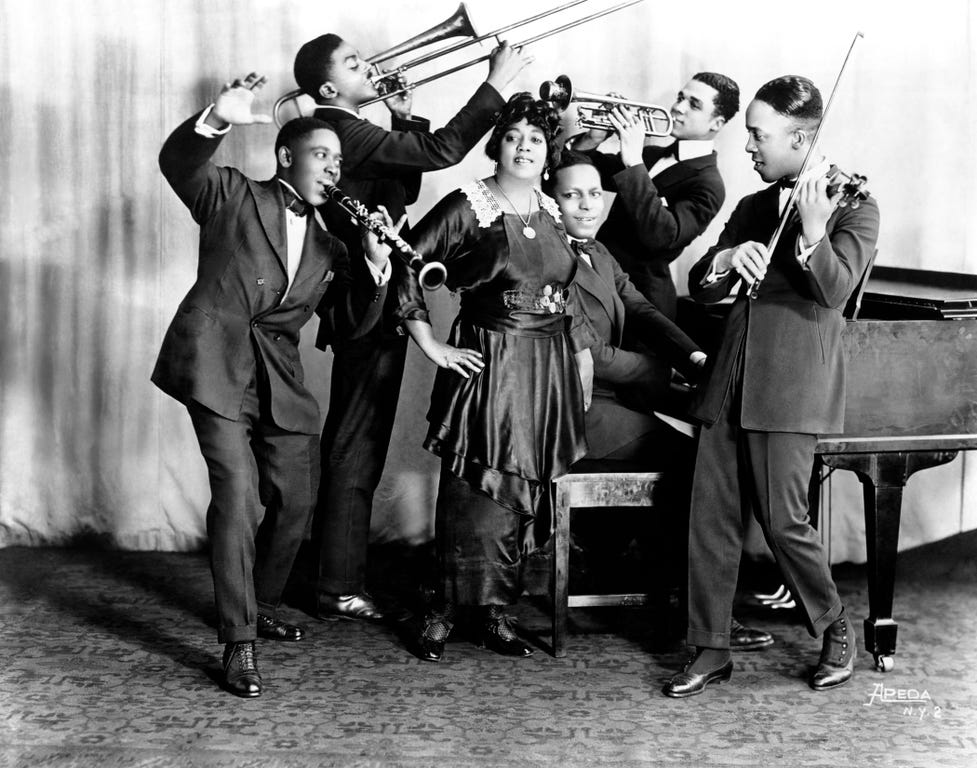
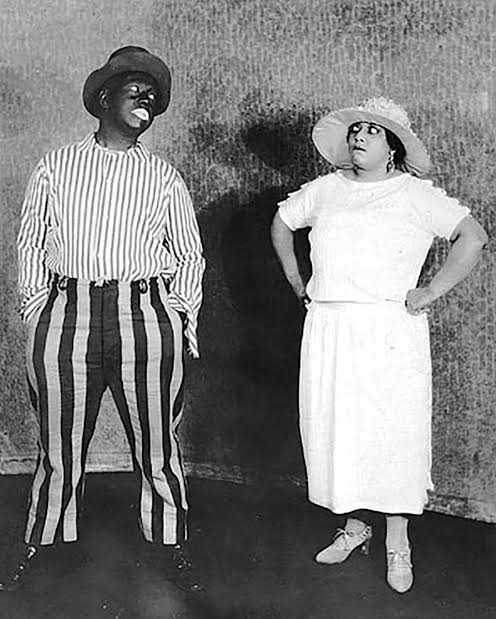
The song itself was a heartfelt expression of longing and despair, delivered with Mamie Smith’s powerful, soul-stirring voice. It resonated deeply with audiences, especially Black listeners who found a voice that captured their experiences and emotions. “Crazy Blues” struck a chord, selling over a million copies and becoming a sensation.
This monumental success was a game-changer for the recording industry. It not only demonstrated the commercial viability of Black artists but also opened the doors for the emergence of the blues genre as a significant force in popular music. “Crazy Blues” is often regarded as the first recorded blues song, and Mamie Smith’s contribution cannot be overstated.
Back then, people didn’t think Black people would buy records — period, end of story,” Obrecht says. “But Perry Bradford… he had a feeling that Black people would buy records. And so that’s why he had Mamie do those recordings. And he turned out to be correct
Mamie Smith’s historic recording paved the way for countless Black musicians and vocalists, both women and men, to enter the recording studio. It marked the beginning of a new era in music, one that celebrated the richness and diversity of African American musical traditions.
Marie Mamie became a voice for those who had long been silenced
Mamie Smith’s “Crazy Blues” not only transformed the music industry but also carried a deep societal resonance. It was a time when African Americans faced the ever-present threat of lynching, domestic terrorism, and racial violence. Mamie Smith’s recording was more than just a song; it became a powerful protest anthem.
The significance of this moment in history cannot be overstated. Mamie Smith’s recording of “Crazy Blues” became a symbol of defiance and resilience. It was a testament to the strength of the African American community, who found solace and strength in music during these tumultuous times.
In the words of some historians, “The first African American recording of the blues is also our first recorded protest anthem.” Through her music, Mamie Smith spoke to the pain and challenges faced by her community, providing a voice for those who had long been silenced.
But the impact of “Crazy Blues” extended beyond its message. It proved unequivocally that Black women could create hit records and that there was a thriving market for Black popular music. The success of Mamie Smith shattered the industry’s preconceived notions about who could be a star and what kind of music would sell.
This groundbreaking achievement by Mamie Smith paved the way for future generations of Black women in music, from blues and jazz to rock and hip-hop. It sent a powerful message: talent knows no boundaries, and the world was ready to embrace diverse voices and sounds.
Mamie smith’s struggles
After the phenomenal success of “Crazy Blues,” Mamie Smith continued to record and perform, solidifying her status as one of the leading voices in the emerging blues and jazz scene. She released a series of recordings that showcased her versatility as an artist, from soulful ballads to spirited up-tempo numbers.
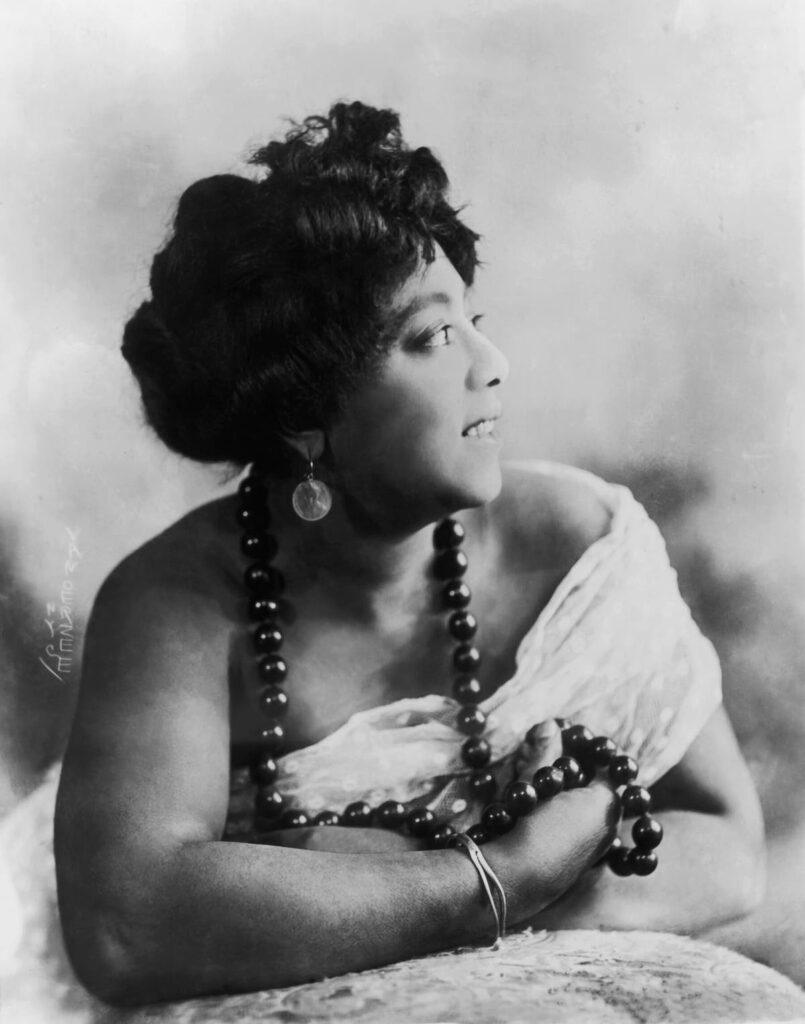
One notable aspect of her career was her collaboration with other influential artists of her time, including luminaries like Louis Armstrong and Fletcher Henderson. These collaborations further expanded her musical horizons and contributed to the evolving sound of early jazz.
However, despite her undeniable talent and groundbreaking achievements, Mamie Smith faced significant challenges. The music industry remained fraught with racial discrimination, and the commercial success she enjoyed didn’t necessarily translate into equitable treatment. Smith encountered obstacles such as unequal pay and limited opportunities for Black artists, which were harsh realities of the era.
As the years passed, the popularity of the blues and jazz genres soared, with a new generation of artists taking the spotlight. Mamie Smith’s impact on the music industry was undeniable, but she gradually faded from the mainstream as new stars emerged. Nevertheless, her contributions remained vital to the foundation of these genres.
In the decades that followed, Mamie Smith’s influence endured through the artists she inspired. Countless Black women musicians looked to her as a trailblazer who defied conventions and proved that their voices deserved recognition. Her legacy became a source of empowerment for future generations, serving as a reminder that talent and determination could overcome adversity.
The impact of Mamie Smith a trailblazer for future generations
Mamie Smith’s success broke down barriers and opened doors for Black women in the music industry. Her recording not only demonstrated their talent but also provided opportunities for them to shine on a global stage.
The “crazy Blues” played a pivotal role in diversifying music genres rooted in African American culture. It helped broaden the acceptance of blues, jazz, R&B, and more, enriching the music landscape with diverse sounds and experiences.
Mamie Smith’s pioneering journey served as an inspiration to countless Black women artists who came after her. Her unwavering determination became a symbol of hope for those striving to make their mark in the music industry.
Furthermore, beyond its musical significance, “Crazy Blues” had a profound social and cultural impact. It allowed African Americans to assert their identity and voice in a society marked by racial discrimination, acting as a form of cultural resistance.
Lastly, Mamie Smith’s success acted as a catalyst for change in the recording industry. It compelled record labels to actively seek out Black talent, leading to a more inclusive and diverse music landscape.
Mamie Smith’s story highlights the transformative power of music. Her resilience, determination, and exceptional talent transcended the limitations of her time, paving the way for a more inclusive and diverse music industry. Her legacy continues to inspire artists today, emphasizing the profound ability of music to challenge societal norms and bring about positive change.
Mamie smith showed the world that Black women singers had something special, beautiful, emotionally charged, heartfelt and inspirational to offer.
Mamie Smith’s groundbreaking achievement not only paved the way for iconic artists like Billie Holiday, Aretha Franklin, Whitney Houston, and Beyoncé, who later dominated the world of pop music, but it also shattered preconceived notions about what popular music could be. It showed us that music had the power to speak to the depths of our inner lives, to touch our souls and spark profound connections.
We’ve come to the end of our story of Mamie Smith’s fascinating life and impact on music. Her story shows us how powerful music can be and how one person’s talent and determination can change an entire industry and culture.
Mamie Smith’s legacy still matters today, reminding us that when we follow our passions and aren’t afraid to challenge the norm, we can make a big difference. Thanks for joining us in celebrating this amazing artist, and we’ll be back with more inspiring stories in the future. Until then, stay curious and keep exploring the world of art and history!













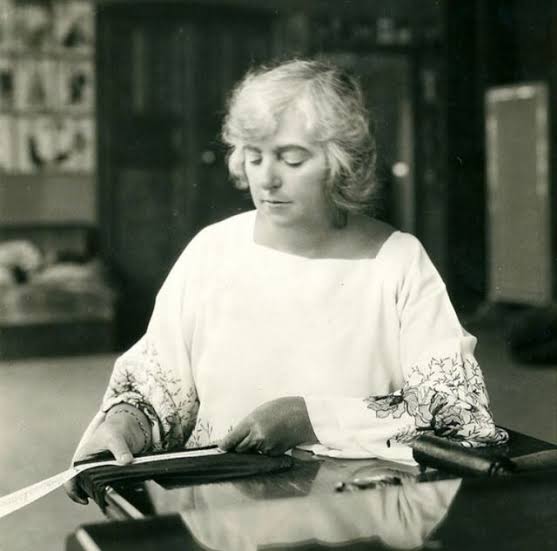
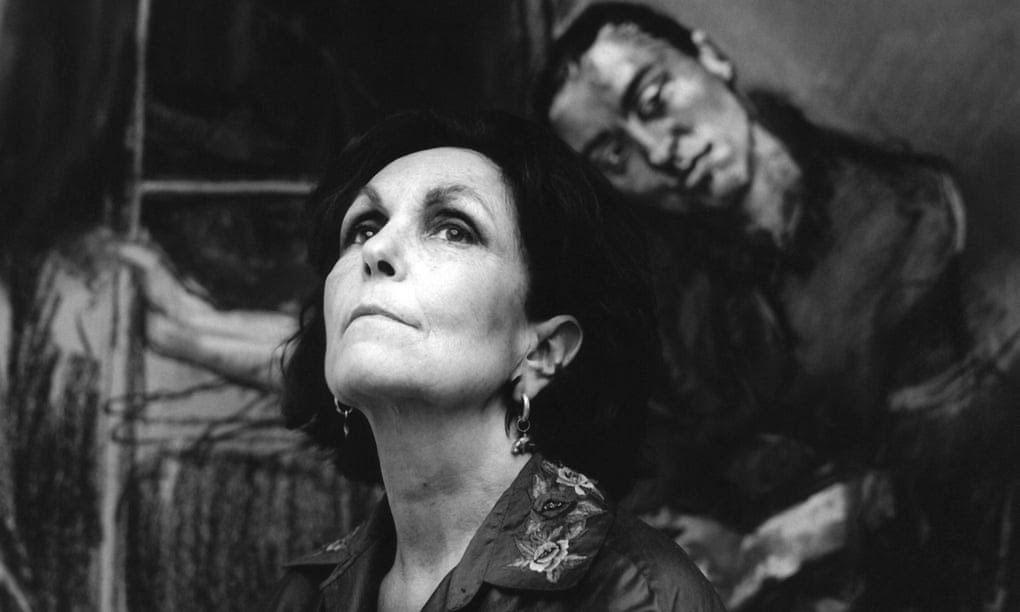


Comments 12